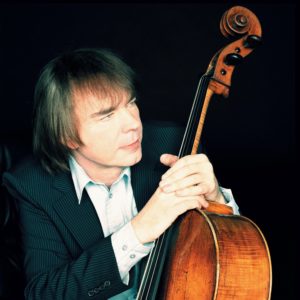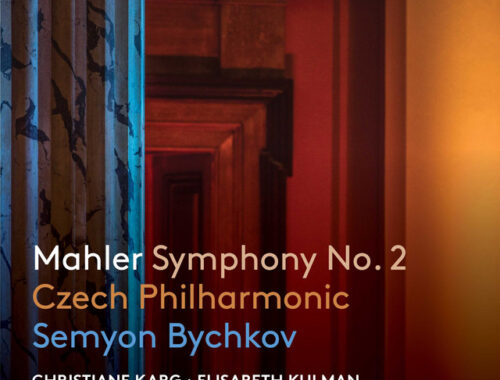GRAMOPHONE Review: Songplay – Joyce DiDonato
 What we have here is the epitome of what we Brits call a ‘Marmite’ experience with elements to love and/or loathe whether or not you buy the concept in the first place. Joyce DiDonato’s fans will, of course (and I am one), though as a muso and a journalist who straddles both the classical and popular genres I have to say that even I was thrown by some of the curved balls.
What we have here is the epitome of what we Brits call a ‘Marmite’ experience with elements to love and/or loathe whether or not you buy the concept in the first place. Joyce DiDonato’s fans will, of course (and I am one), though as a muso and a journalist who straddles both the classical and popular genres I have to say that even I was thrown by some of the curved balls.
DiDonato’s penchant for the theatrical, the unexpected, and even the slightly subversive is well known to us and SONGPLAY (as the title suggests) is no exception embarking upon a capricious game of rediscovery and reinvention with a motley collection of songs (predominantly from the Italian songbook but that of her native America, too) each given a stylistic twist through the collective endeavours (and brilliance) of her jazz-centric collaborators: the poetic Craig Terry (piano), Charlie Porter (trumpet), Chuck Israels (bass) and Jimmy Madison (drums). So we might swing the Baroque, smooch or samba our way through the da capos or even lend the flavour of a tango through the evocative Bandoneon of Lautaro Greco.
But the real twist here is that DiDonato retains the ‘formality’ of her operatic sound and delivery whilst attempting to apply a jazzer’s instincts. So her singerly embellishments rub shoulders with jazz improv to achieve a deliberately provocative and (to my mind) unsettling dynamic. Some things work (the purer the treatment, the more poetic the outcome); others fail spectacularly.
It’s interesting to me that the Italian numbers generally sound happier than the American ones. The operatic delivery (however scaled down) sits more comfortably with the Italian language than her slightly ‘formal’ enunciation and projection of the English. Even then there are exceptions: Gene Scheer’s ‘Lean Away” is possessed of a folksy simplicity and the overwhelming feeling that less really is more with this album.
The best of it comes when voice and piano are in cool, quiet accord: Giordano’s ‘Caro mid ben’ and Paisiello’s ‘Nel cor pie non mi sento’ sit very simply on pianist Craig Terry’s exquisitely placed chords and harmonies; Caccini’s ‘Amarilli, Mia bella’ conveys a sultry desire; and Torelli’s ‘Tu lo sai’ quietly inhabits the melancholy of the song, piano and trumpet at their most jazzily, smokily, wistful.
It all starts to unravel for me when up-tempo jazz and opera collide. Ellington’s ‘In My Solitude’ and Wru-bel/Magidson’s ‘(I’m Afraid) The Masquerade is Over’ just sound uncomfortable and incongruous as if (notwithstanding the ‘bending’ of notes and inherent portamento) the voice just doesn’t belong in this context. I get that that’s the twist behind the album but in those moments I just want one or the other – jazz or opera – not both at the same time.
I wish that George Shearing’s ‘Lullaby of Birdland’ had remained in the Baroque/Bachian mode of the opening – that is so cute. But the operatic quality of the voice alone makes the playfulness of the up-tempo section just sound, well, embarrassingly ‘arch’. The same is also true, alas, of the two musical theatre songs included here. It’s a genre I feel passionate about and protective towards and again the phrasing and sound of DiDonato’s rendition of ‘Will He Like Me’ from Bock and Harnick’s She Loves Me just feels wrong, and, by her standards, not particularly well sung either. Nor is Rodgers and Hart’s ‘With a Song in My Heart’, one of my very favourite songs of all time and one in which the operatic complexion of her voice might well have worked in a different context. Rodgers did so hate people messing with his stuff and would undoubtedly have taken exception to the climax of the song never being delivered as he wrote it. First time around, the exciting ‘money’ note, E-flat – the note on which the melody ‘turns’ into the climax – is dropped to a G and the return simply takes that G up an octave – so we still don’t hear the note Rodgers actually wrote. Sounds minor, but you don’t mess with a melody this good.
I have come to the conclusion that this whole project would have worked better with a few judicious exclusions and with just Craig Terry’s searching hands at the keys of his piano. He really is a star. By the way, there’s a little unannounced surprise following the last track – for those of you who get that far.
You May Also Like

A Conversation With JULIAN LLOYD WEBBER
02/06/2011
COMPARING NOTES with ALFIE FRIEDMAN
05/01/2023

